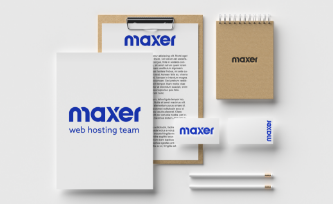Google Chrome now penalising non-HTTPS sites!: Secure your site with AutoSSL & HTTPS
Published by Peter Armstrong on July 24th, 2018
The latest release of Google’s Chrome v68 web browser will now warn users that a website is “not secure” if the website is not using HTTPS (the S stands for Secure). With a market share of over 60%, Chrome is sending a clear message that all websites should use an SSL certificate and contain no ‘mixed content’ (like insecure images or stylesheets).
Thankfully Spiral Hosting make it easy to secure your website with AutoSSL included on all shared hosting, enterprise hosting and reseller hosting plans. Your web developer can use AutoSSL or a branded certificate to secure your web pages.
AutoSSL is an automatically provisioned SSL certificate securing your HTTPS website (whether it is a domain, sub-domain, add-on domain or alias). AutoSSL offers a DV (domain validated) SSL certificate, which will encrypt all data sent between your HTTPS website and a visitor’s web browser.
AutoSSL is already rolled out across all our web servers (since February 2017), so you or your web developer can implement full HTTPS mode across your website(s) at any time. AutoSSL is a 90-day cPanel-signed SSL certificate, and it will automatically renew every 90 days.
We recommend all clients implement full HTTPS mode across their websites. Google and Bing give a higher search ranking to SSL websites, and big technology companies like Mozilla, Microsoft, Safari all plan to phase out web browser features for non-SSL websites.
In addition to AutoSSL, we continue to offer SSL certificates from big brands like Comodo, GeoTrust and GlobalSign, which are an excellent option for securing your website for 1 or 2 years. For example Comodo Positive SSL offers a great entry-level certificate to secure your website at a budget price, or if the website is for a limited company we would recommend an organisation validated (OV) or extended validated (EV) certificate – they cost a bit more and include the limited company name in the certificate details. Please see the SSL Certs page on our website for full details.
Here are some useful resources on enabling HTTPS on your websites:
1) Google – Maintain your site – Secure your site with HTTPS
https://support.google.com/webmasters/answer/6073543?hl=en
2) Search Engine Land – HTTP to HTTPS: An SEO’s guide to securing a website
http://searchengineland.com/http-https-seos-guide-securing-website-246940
3) Spiral Hosting – FAQ’s – Introduction to AutoSSL
https://secure.spiralhosting.com/knowledgebase.php?action=displayarticle&id=166
4) Spiral Hosting – FAQ’s – Use an .htaccess file to force site-wide HTTPS mode
https://secure.spiralhosting.com/knowledgebase.php?action=displayarticle&id=164
5) Spiral Hosting – FAQ’s – Enabling HTTPS on a WordPress website
https://secure.spiralhosting.com/knowledgebase.php?action=displayarticle&id=165

 Chat
Chat Blog
Blog Sign In
Sign In

















